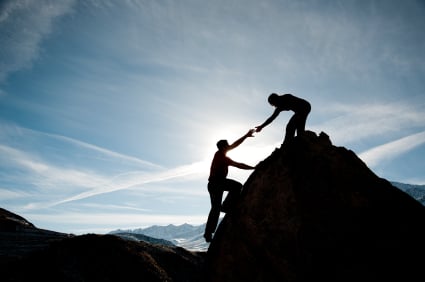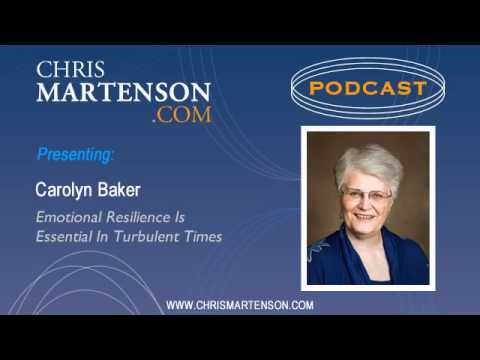 Carolyn Baker, therapist and prominent advocate for culturing emotional preparedness in times of transition, looks to the future and sees a great many people at risk of unprecedented loss. Loss of jobs, loss of lifestyle, loss of wealth, loss of relationships – and quite possibly loss of life – as society becomes increasingly traumatized by secular economic slowdown and growing resource scarcity.
Carolyn Baker, therapist and prominent advocate for culturing emotional preparedness in times of transition, looks to the future and sees a great many people at risk of unprecedented loss. Loss of jobs, loss of lifestyle, loss of wealth, loss of relationships – and quite possibly loss of life – as society becomes increasingly traumatized by secular economic slowdown and growing resource scarcity.
I have watched the Crash Course several times. So this is already happening dramatically and far more rapidly than anyone could have anticipated. Peak Oil, the end of money as we know it, escalating climate change – all of these will temper everything we do. This is the new normal, and there is no going back to the "old" normal. These drastic and daunting changes will invariably and unequivocally invoke enormous emotional responses in people, as they already are, in terms of fear, panic, anger, depression, despair, and in many cases off-the-charts addictions and suicides.
But Carolyn also sees unprecedented opportunity ahead for those who are mentally and emotionally prepared to meet the coming future.
What will determine who prospers and who doesn't? In her professional opinion, two things: meaning and purpose.
Both history and scientific study show that those who are able to connect their existence to something greater than their human ego are much more likely to persevere through adversity. When faced with the same set of circumstances, those who maintain a positive narrative are far more likely to gain mastery over their own reactions and mobilize themselves in constructive ways. Notable learnings on this have been drawn from the Nazi German concentration camps (Viktor Frankl's Man's Search for Meaning) and post-collapse Soviet Russia (Dmitri Orlov's Reinventing Collapse).
To find meaning and purpose, Carolyn advocates a process called 'inner transition,' which focuses the individual on answering two questions: "Who do I want to be?" and "What am I here to do?" The process is about redefining our relationship to work, to each other, and to the world around us - in short, redefining what "prosperity" means. For too many in the recent past, prosperity = money. In a future where many current professions and industries may no longer exist, those who respect the work they do - whatever it is - will find much more fulfillment than those remaining fixated on a specific income level that they may not be able to return to.
This new prosperity includes richer relationships with one's self, loved ones, and the community. Carolyn warns that almost none of us is wired to thrive emotionally in isolation. As she puts it,
[W]ithout this kind of preparation, even the most re-skilled person who has made excellent logistical preparation will very likely be overwhelmed in a world of terrified, angry, depressed human beings. A person can have the most awesomely equipped "doomstead" on earth and yet completely lose their grip emotionally in just a few minutes, without emotional and spiritual resilience.
And she emphasizes the critical significance of having a mindset that the change the future is bringing will lead to better destinations. In Carolyn's mind, it's a chance for us as a global society to reach a higher plateau:
I believe that we are all standing on an evolutionary threshold in which we have the possibility not only of creating a new culture, but actually becoming a new kind of human being that will understand how to live with connection with ourselves, with each other and with the earth. So much of the suffering and acts that will happen in the meantime, we have to be prepared for. But if we can work with it instead of resist it, that evolutionary leap may be possible.
In the full interview below, Chris and Carolyn explore these topics in much more depth, including the specifics of the workshops Carolyn runs across the country to help individuals develop their "emotional toolkit."
Click the play button below to listen to Chris' interview with Carolyn Baker (runtime 35m:45s):
iTunes: Play/Download/Subscribe to the Podcast
Other mp3: Download/Play the Podcast
Report a Problem Playing the Podcast
Or click here to read the full transcript.
Carolyn Baker, Ph.D.,was an adjunct professor of history and psychology for 11 years and a psychotherapist in private practice for 17 years. (She is not, and never has been, a licensed psychologist.)
Carolyn is available for speaking engagements and author events and can be contacted here. She has authored the following books: Navigating The Coming Chaos: A Handbook For Inner Transition (2011), Sacred Demise: Walking the Spiritual Path of Industrial Civilization's Collapse (2009), Coming Out of Fundamentalist Christianity: An Autobiography Affirming Sensuality, Social Justice, and The Sacred (2007), U.S. History Uncensored: What Your High School Textbook Didn't Tell You and The Journey of Forgiveness: Fulfilling The Healing Process.
Our series of podcast interviews with notable minds includes:
- Carolyn Baker
- David Stockman
- Rob Hopkins
- Joel Salatin
- Charles Hugh Smith
- Frank Barbera
- Nate Hagens
- David Morgan
- James Turk
- Eric Sprott
- John Rubino
- Addison Wiggin
- Simon Black
- Axel Merk
- Paul Tustain
- Francis Koster
- Dogs_In_A_Pile
- Bud Conrad
- John Williams
- Robert McFarlane
- David Collum
- Joe Saluzzi
- Jim Rogers
- Bill Fleckenstein
- Marc Faber
- Willet Kempton
- Dan Ariely
- Ted Butler
This is a companion discussion topic for the original entry at https://peakprosperity.com/carolyn-baker-emotional-resilience-is-essential-in-turbulent-times-2/
